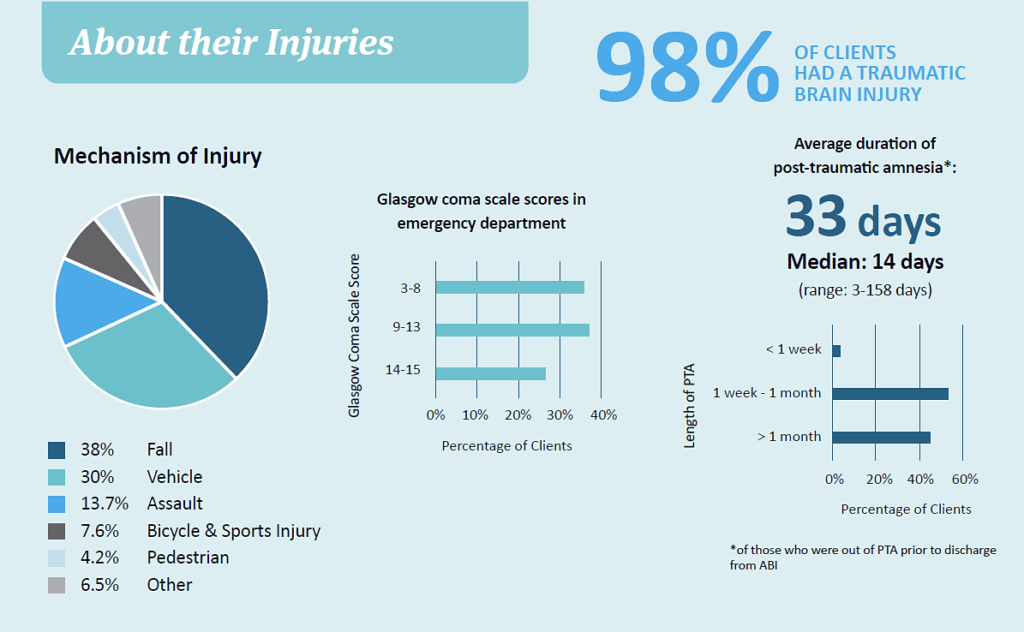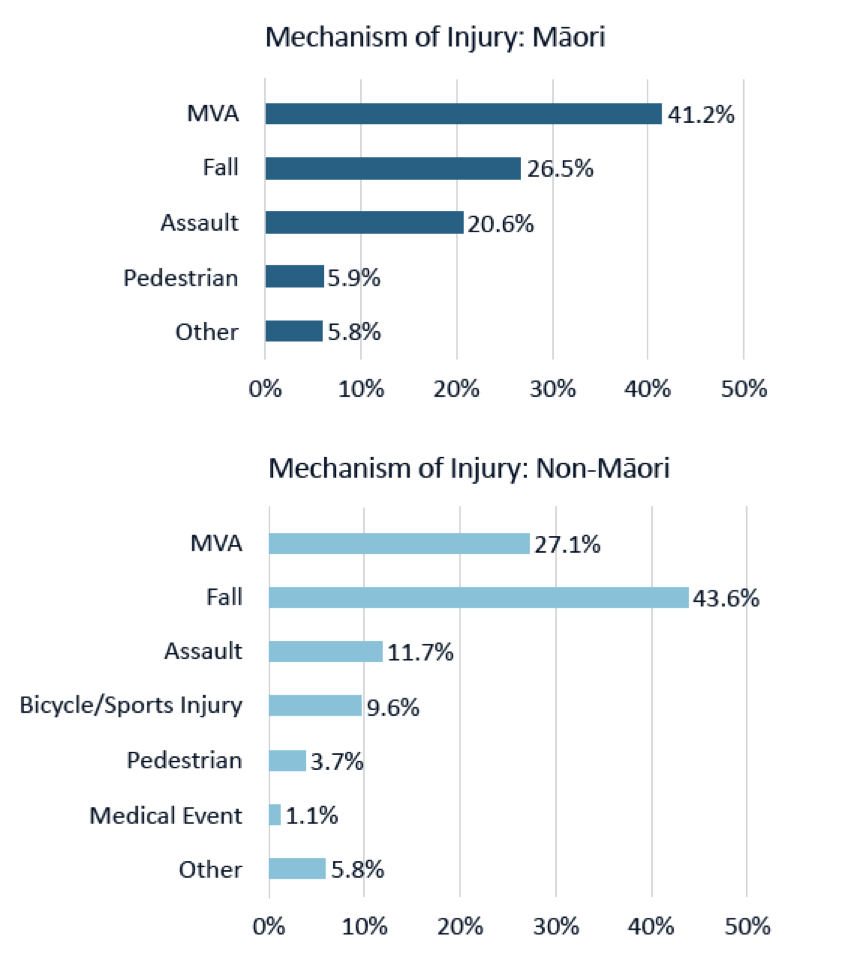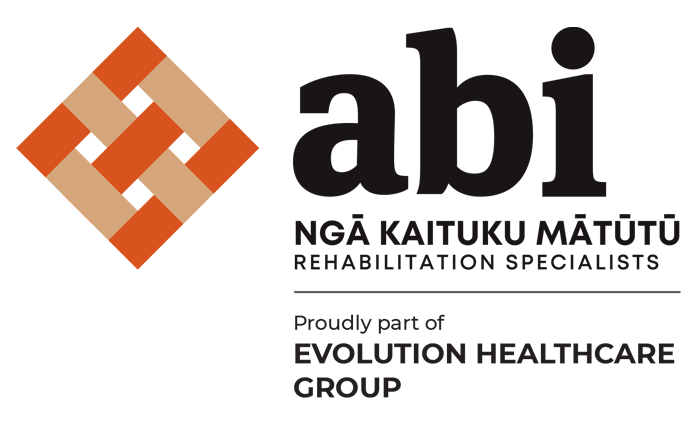March is Brain Injury Awareness Month. In New Zealand there are approximately 32,000 traumatic brain injuries (TBI) per year (based on reported ACC claims). About 2,000 of the 32,000 TBI’s are in the moderate to severe range. Many of those that have a brain injury of this severity will have some long term, possibly lifelong impairments.
ABI is a specialist brain injury rehabilitation provider. Not only are we committed to providing best practice rehabilitation interventions, but it is important for us to be involved in raising awareness of brain injury and rehabilitation amongst the general public, our GP colleagues, and colleagues who work in Accident and Medical Centres and DHB’s.
Within New Zealand, ABI is one of 2 specialist TBI intensive inpatient rehabilitation services for those over the age of 16 years.
During 2021, 262 people with moderate to severe TBI received intensive inpatient rehabilitation at ABI. The majority of these people are transferred to ABI from hospital once medically stable however a small portion are admitted from the community. Early intensive rehabilitation is considered best practice for those with moderate to severe TBI. The purpose of this is to assess and review progress, provide therapy to regain and improve physical and cognitive skills, coach and educate about brain injury and what to expect over the coming months. The intensive rehab allows for practice of what has been taught in therapy sessions before returning home and returning to prior life roles.
Our team at ABI Intensive Services includes Rehabilitation Medicine Physicians, Rehabilitation Nurses, Occupational Therapy, Speech and Language Therapy, Physiotherapy, Psychology, Neuropsychology, Social Work, and Kaiārahi Kaupapa Maori. The clinicians are all passionate about brain injury rehabilitation and find working with clients and whānau incredibly rewarding.
ABI provides intensive inpatient rehabilitation from facilities in Auckland and Wellington. We receive patients from Canterbury DHB north for those over the age of 16 years requiring inpatient rehabilitation (under 16’s can receive this inpatient service via the Child Rehabilitation Service at Wilson Centre in Auckland). ABI has four Brain Injury Nurse Specialists, who work across the DHB’s. The Brain Injury Nurse Specialists support the acute teams identifying those who would benefit from intensive inpatient rehab and work alongside whānau to ease the transfer to ABI for intensive rehabilitation.
During 2021, the 262 people who were admitted to ABI’s intensive inpatient service with moderate or severe TBI:
- Were 73% male and 23% female
- Had an average age of 51 years (but ranged from 15 years to 90 years)
- Received a TBI as a result of a fall (38%), motor vehicle accident (30%), assault (13.7%),
- Had an average length of stay of 45 days
- Had an average length of Post Traumatic Amnesia of 33 days highlighting how severe the injuries were
- Discharged home 83% of the time (some older clients were discharged to aged residential care)

Looking at data relating specifically to Māori clients coming to intensive services, shows some key differences when compared to other ethnicities.
Māori are:
- younger (majority being under 40 years)
- on average have a longer length stay
- on average present with more severe brain injuries
- sustain a brain injury primarily from motor vehicle accidents and assaults
A five year review of ABI’s minimally conscious data, shows young Māori women are significantly over represented within the emerging consciousness programme.

Most clients with moderate and severe TBI need ongoing community based assessment and rehabilitation on discharge following the intensive period and will receive this locally. However we know the period of intensive rehabilitation has generally provided a good foundation for ongoing recovery and rehabilitation.

